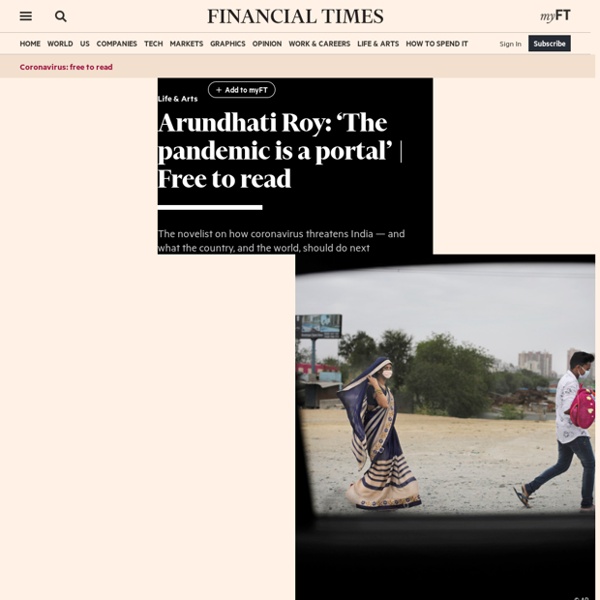What the 1918 flu pandemic can teach us about coronavirus drug trials
Sometimes the parallels between this pandemic and previous ones are uncanny. Take hydroxychloroquine, the anti-malarial drug that regulatory agencies all over the world are now hastily authorising for the treatment of hospitalised Covid-19 patients. Outside hospitals, Donald Trump and the Brazilian president, Jair Bolsonaro, have expressed enthusiasm for the drug, people are breaking social distancing rules to get it, and there have been cases of poisoning due to inappropriate self-medication.
Another day not at the office: will working from home be 2020's most radical change?
There’s a man sitting at the first-floor window of the house that lies on the other side of my back fence. It’s early August, the weather is sweltering, and his window is wide open. He’s talking on a hands-free phone, laughing in that ingratiating manner that suggests a large payday is at stake. He speaks in a fashionable sales patter that sounds similar to real conversation, but crucially isn’t, and he’s practically broadcasting his pitch to the neighbourhood. WTF?
The Coronavirus Inflicts Its Own Kind of Terror
BRUSSELS — The coronavirus has created its own form of terror. It has upended daily life, paralyzed the economy and divided people one from another. It has engendered fear of the stranger, of the unknown and unseen.
Has Sweden's coronavirus strategy played into the hands of nationalists?
Sweden has persisted with the strategy of coronavirus mitigation that the UK government eventually abandoned in March. The policy is widely supported by the public, even though the Swedish Covid-19 mortality rate is among the 10 highest in the world, at 240 per million population and steadily rising, and many of the nursing homes in Stockholm are now affected. The typical explanation for this continued public support is that Swedes are trusting and unflappable. The country’s chief epidemiologist, Anders Tegnell, the public face of the Swedish response to the pandemic, is after all a dry scientist-turned-bureaucrat, not some populist politician trying to whip up nationalist go-it-alone emotion. But beneath the surface, Sweden is anything but calm. The public debate is inflamed with a sense of wounded national pride.
Coronavirus detected on particles of air pollution
Coronavirus has been detected on particles of air pollution by scientists investigating whether this could enable it to be carried over longer distances and increase the number of people infected. The work is preliminary and it is not yet known if the virus remains viable on pollution particles and in sufficient quantity to cause disease. The Italian scientists used standard techniques to collect outdoor air pollution samples at one urban and one industrial site in Bergamo province and identified a gene highly specific to Covid-19 in multiple samples.
Landlords slash rents by up to 20% as tenants quit city centres in pandemic
Private rents in some parts of London have tumbled by up to 20% as tenants quit the capital, the number of international students plummets and companies put relocation plans on hold. A glut of rental properties on the market means many landlords have had to slash rents in order to attract tenants. While leading estate agents say average rents in London are down by perhaps 4% on a year ago, or 6% to 7% in the so-called “prime” areas, these figures mask much bigger falls in certain locations as Covid-19 continues to wreak havoc on the lettings market.
/society/2020/mar/25/release-prisoners-or-face-jail-pandemic-says-chief
Prisoners should be released in order to prevent UK jails being overwhelmed by the coronavirus pandemic, the head of the Prison Governors Association has told the Guardian. Andrea Albutt said prisons were facing “unprecedented risk” and the release of some prisoners would help prevent disorder and slow the spread of the virus. On Tuesday the Ministry of Justice announced that all visits to prisons would be suspended and inmates would be confined to their cells in an effort to prevent the spread of Covid-19.
Vietnam has reported no coronavirus deaths – how?
Vietnam – a developing country that has a large land border with China and a population of 97 million people – has not reported a single death from coronavirus. As of April 21, the country had reported 268 cases of COVID-19, the disease associated with the new coronavirus, with more than 140 people making a full recovery. The reason why Vietnam has managed to keep patients from death’s door is down to a three-pronged government strategy.
Homemade hand sanitiser recipes that could help protect against coronavirus
To slow the spread of coronavirus we’re being told to wash our hands more, preferably with soap and water, or failing that, with hand sanitisers. The resulting rush to buy hand sanitisers has led to empty shelves in supermarkets and chemists. But it hasn’t taken long for recipes for hand sanitisers to appear online.
From plague to penury - The pandemic is plunging millions back into extreme poverty
Editor’s note: Some of our covid-19 coverage is free for readers of The Economist Today, our daily newsletter. For more stories and our pandemic tracker, see our hub FOR MORE than a decade Suresh Aryal has flogged momos, steamed dumplings from Nepal, on the streets of New Delhi. On a good day the 32-year-old could take home as much as 6,000 rupees ($82). Then in March, as covid-19 spread, India shut down. Mr Aryal waited for things to improve for three months.
: Queen tells UK 'we will succeed' in fight
Media playback is unsupported on your device The Queen has said the UK "will succeed" in its fight against the coronavirus pandemic, in a rallying message to the nation. In a rare speech, the monarch thanked people for following government rules to stay at home and praised those "coming together to help others". She also thanked key workers, saying "every hour" of work "brings us closer to a return to more normal times". It comes as the number of people to die with the virus in the UK reached 4,934. 'We will meet again'



